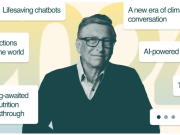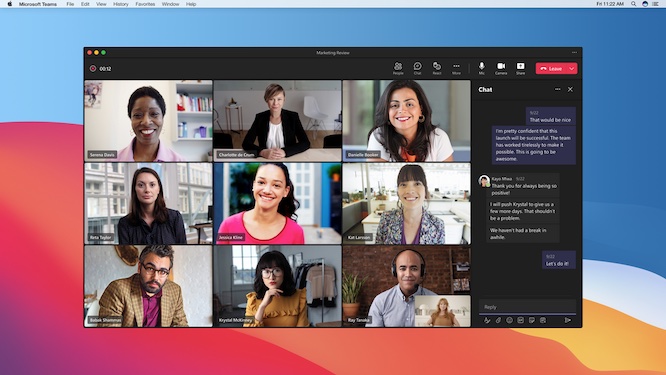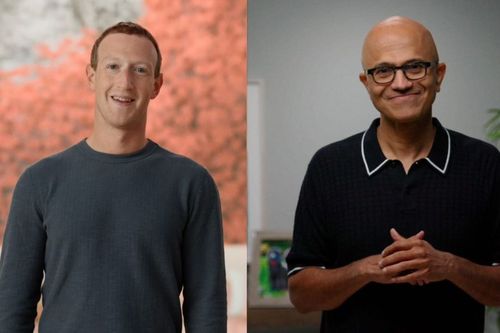In the pre-Meta(-zoic) era, the word TEAM was an acronym for “Together Everyone Achieves More.” After the Meta 2022 Connect keynote in October, the word TEAM has evolved to become “The Enterprise Application for Meetings” and “The Enterprise Application for the Metaverse” — add an “S” to Team for Success!”
This new team’s co-captains, CEOs Mark Zuckerberg and Satya Nadella, have announced a teaming of hardware, software and enterprise-level services around the new Quest Pro platform in what could be described as a parlay bet on the future of virtual reality.
Microsoft is bringing its Teams-based ecosystem to Quest, along with enterprise tools like Azure Active Directory and Intune device management, with Xbox Game Pass along for the fun of it. In this triple play, Microsoft gets to piggy-back on Meta’s massive investments in hardware.
Meta Platforms, the company formerly known by its most famous social media platform Facebook Inc., will be looking to speed up its AI concepts to market by making use of a “dedicated Azure cluster.”
Meta’s statement on the deal reveals that the company started making use of Microsoft Azure’s supercomputing power and virtual machines to carry out its computationally complex, large-scale AI research.
Wring in Stratechery, Ben Thompson remarked, “It’s difficult to overstate what a massive win this feels like for Microsoft: the company will have a privileged position on what is for now the most advanced headset with the most resources behind it, not because it is paying for the privilege but because it is the most obvious go-to-market for this new technology.”
Thompson opines that Satya Nadella was the first tech executive to endorse the metaverse as a strategic goal. It makes sense. There is likely to be good business in building private metaverses for private companies. Who better than Microsoft to make it happen?
Horizon Workrooms undergirds the argument that Microsoft is the best placed to succeed with virtual reality. Yes, virtual reality entails putting on a headset and leaving your current environment for a virtual one, but that is not so different from leaving your house and going to the office. Moreover, Microsoft’s shift to Teams as its de facto OS means it is well-placed to deliver those company-specific metaverses.
Not only is enterprise the most obvious channel for virtual reality from a hardware perspective, but Teams is the most obvious manifestation of virtual reality’s potential from a software perspective.
And yet, while Quest Pro is a definite leap forward, it is still a few years away from a device that is truly ready for mass consumption, and for purely practical reasons: weight, battery life, and resolution.
Still, the pros of the partnership way outweigh the risks.
Azure cemented itself as the second-biggest public cloud provider globally, trailing just runaway market leader Amazon Web Services. This is in somewhat stark contrast with the fortunes of Meta Platforms, with CEO Zuckerberg highlighting at the company’s annual shareholder meeting that while he plans to invest heavily in the development of his metaverse – in the short term, the ambitious virtual world project is expected to lose “significant” amounts of money before it turns any sort of profit.
A Commitment to Advancing AI
Meta and Microsoft will also collaborate to scale PyTorch adoption on Azure and accelerate developers’ journey from experimentation to production. Azure provides a comprehensive top to bottom stack for PyTorch users with best in class hardware (NDv4s and Infiniband). In the coming months, Microsoft will build new PyTorch development accelerators to facilitate rapid implementation of PyTorch-based solutions on Azure.
“We are excited to deepen our collaboration with Azure to advance Meta’s AI research, innovation and open-source efforts in a way that benefits more developers around the world,” Jerome Pesenti, VP of AI, Meta. “With Azure’s compute power and 1.6 TB/s of interconnect bandwidth per VM we are able to accelerate our ever-growing training demands to better accommodate larger and more innovative AI
models. Additionally, we’re happy to work with Microsoft in extending our experience to their customers using PyTorch in their journey from research to production.”
The Team Huddle: Following the Playbook
Satya and Zuck sat down to answer a few questions about team spirit:
Zuckerberg: I think work software is pretty different from social software, and then there’s a range within work. Enterprise is almost its whole own beast, and Microsoft I think is really the leader and the best at this, and has been for quite some time. When I was thinking about how this platform is going to develop overall, taking a step back, I think that there are going to be two major price points, if you will, for devices and bundles of technology. I think there’s going to be a consumer device like Quest 2 and Quest 3, the next generation that we’re working on, we’re not releasing it right now.
There will be a Quest 3 and that’s in the price range of $300, $400, or $500, that zone. Then you have this Pro work line where I think high-end professionals and knowledge workers are willing to pay $1,500 for a laptop, $2,000 for a laptop for your workstation, and that basically gives us the ability to build in a lot of technology there, and also improve that technology and build out the development ecosystem before we can get that down to the price point that’ll fit with consumers.
A lot of companies want a device like this loaded up with all of the Microsoft stuff that they know how to use and trust and built that relationship with Microsoft over, in many cases, decades.
Nadella: When Mark and I first talked, he talked about, “Hey, I want my Outlook to be there in Quest so that I can do both my heads up email work and be in meetings,” and do all the other things that he wants to do. So I do fundamentally think that thinking of this as another form factor of personal computing where knowledge work happens and with mixed reality, even frontline work happens, the pass through piece is also pretty exciting. I think that some of these things will start taking hold and some of the apps we built for HoloLens we want to bring to all platforms like Quest.
Zuckerberg: Overall, I think that this is a very natural partnership where I think our strategic interests are pretty aligned, and a lot of the things that we care the most about like the consumer experiences and the sense of expression and the ability to maybe make the version of yourself that you want to express the most, and then be able to hang out with your friends, those are the things that we care about the most and then we just really want to make sure that we have the best work tools on there. So we’ll build our own stuff just because we want to make sure that it exists and we want to push the platform too, but I think work is really Microsoft’s bread and butter, and making sure that hooks up to Azure and that all the enterprises can have this whole 365 suite of tools that Microsoft provides, which I really think to understand the partnership you have to wrap your head around what Microsoft is trying to bring all of that, that full experience for enterprises. [24×7]























